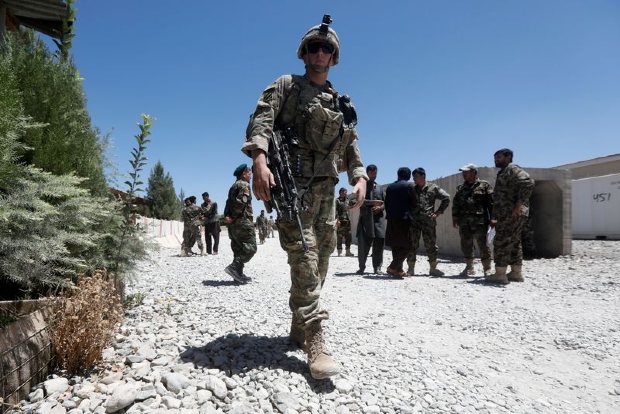Embroiled In Warfare: Tragedy, travesty unfold in Afghanistan
The rapid reconquest of the capital, Kabul, by the Taliban after two decades of a staggeringly expensive, bloody effort to establish a secular government with functioning security forces in Afghanistan is, above all, unutterably tragic.;

Washington
Tragic because the American dream of being the “indispensable nation” in shaping a world where the values of civil rights, women’s empowerment and religious tolerance rule proved to be just that: a dream.
This longest of American wars was code-named first Operation Enduring Freedom and then Operation Freedom’s Sentinel. Yet after $83 billion and at least 2,448 American service members’ lives lost in Afghanistan, it is difficult to see what of lasting significance has been achieved. It is all the more tragic because of the certainty that many of the Afghans who worked with the American forces and bought into the dream — and especially the girls and women who had embraced a measure of equality — have been left to the mercy of a ruthless enemy. The Biden administration was right to bring the war to a close. Yet there was no need for it to end in such chaos, with so little forethought for all those who sacrificed so much in the hopes of a better Afghanistan.
Numberless Afghans who had worked for years alongside American troops, civil society groups, aid organisations and journalists, including the many who had worked with The New York Times, abruptly found themselves in mortal danger on Sunday as the Taliban swept into Kabul as leaders of the Afghan government, including President Ashraf Ghani, headed for the airport. It was tragic, too, because with the bitter political divide of today’s America, efforts to draw critical lessons from this calamitous setback have already been enmeshed in angry recriminations over who lost Afghanistan, ugly schadenfreude and lies. Within hours of the fall of Kabul, the knives were already out.
While the speed of the collapse of the Afghan government was shocking, the result should not have come as a surprise. This calamity cannot be laid alone at President Biden’s feet, but it is incumbent on the current administration to make right what has gone wrong with the withdrawal plans. The U.S. military is, if nothing else, a logistical superpower, and it should move heaven and earth and anything in between to rescue those people who have risked everything for a better future. Red tape shouldn’t stand between allies and salvation.
The war in Afghanistan began in response by the United States and its NATO allies to the attacks of Sept. 11, 2001, as an operation to deny Al Qaeda sanctuary in a country run by the Taliban. How it evolved into a two-decade nation-building project in which as many as 140,000 troops under American command were deployed at one time is a story of mission creep and hubris but also of the enduring American faith in the values of freedom and democracy. The Afghanistan papers published in The Washington Post, including a confidential effort on “Lessons Learned” conducted by the Office of the Special Inspector General for Afghanistan Reconstruction, an agency created by Congress, painted a devastating picture of corruption, incompetence, lack of motivation and other flaws among the Afghan forces the US and its allies were trying to mold into a serious military.
One Navy official said Afghans viewed their police as “the most hated institution” in Afghanistan. Other officials described systematic looting by soldiers and officers, as well as Afghan casualties so huge — 60,000 killed since 2001, by one estimate — that the government kept them a secret. The corruption was so rampant that many Afghans began to question whether their government or the Taliban was the greater evil.
The Pentagon and the U.S. Congress deserve a share of the blame for the debacle, and certainly for the rosy progress reports that so often emerged. But what the United States or its allies could or should have done differently — and whether that hoary cliché about Afghanistan as the graveyard of empires has been validated once again — is a debate that should consume politicians, pundits and historians for years to come. The Biden administration could and should have taken more care to protect those who risked everything in pursuit of a different future, however illusory those dreams proved to be.
The editorial board is a group of opinion journalists with NYT©2021
The New York Times
Visit news.dtnext.in to explore our interactive epaper!
Download the DT Next app for more exciting features!
Click here for iOS
Click here for Android

